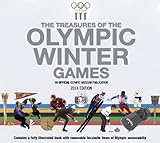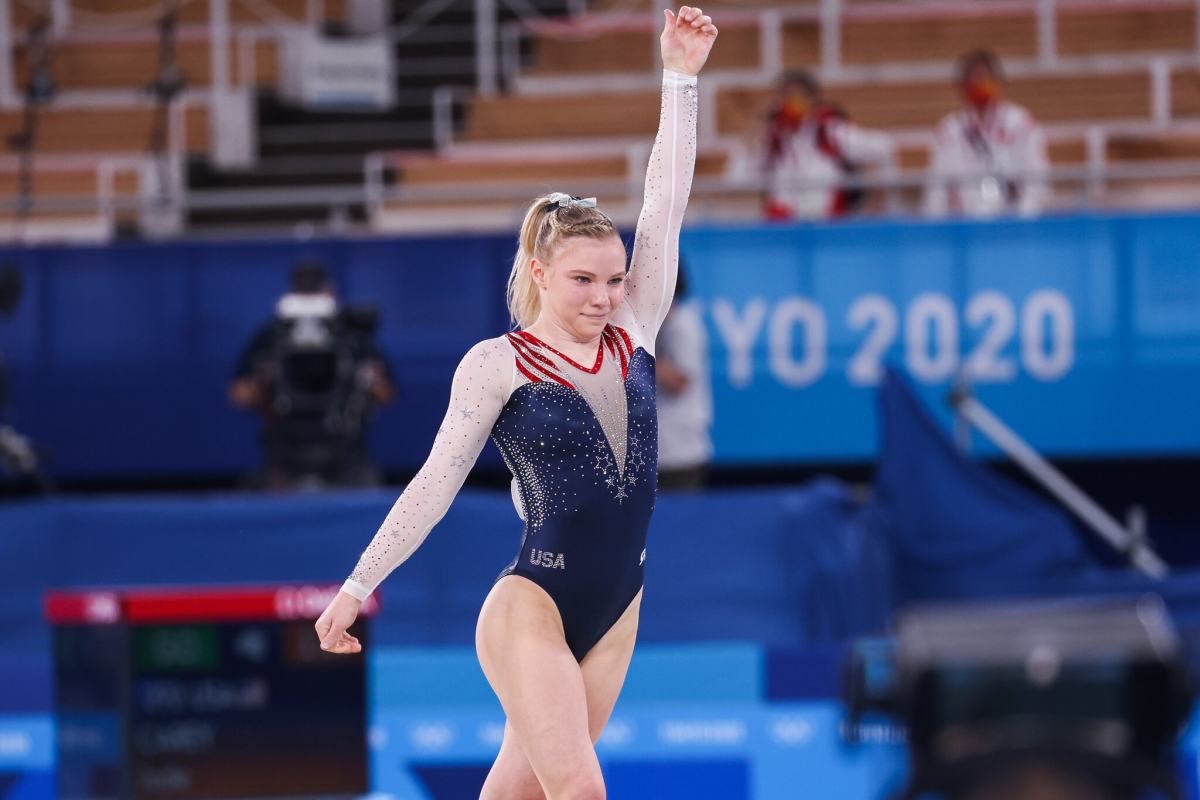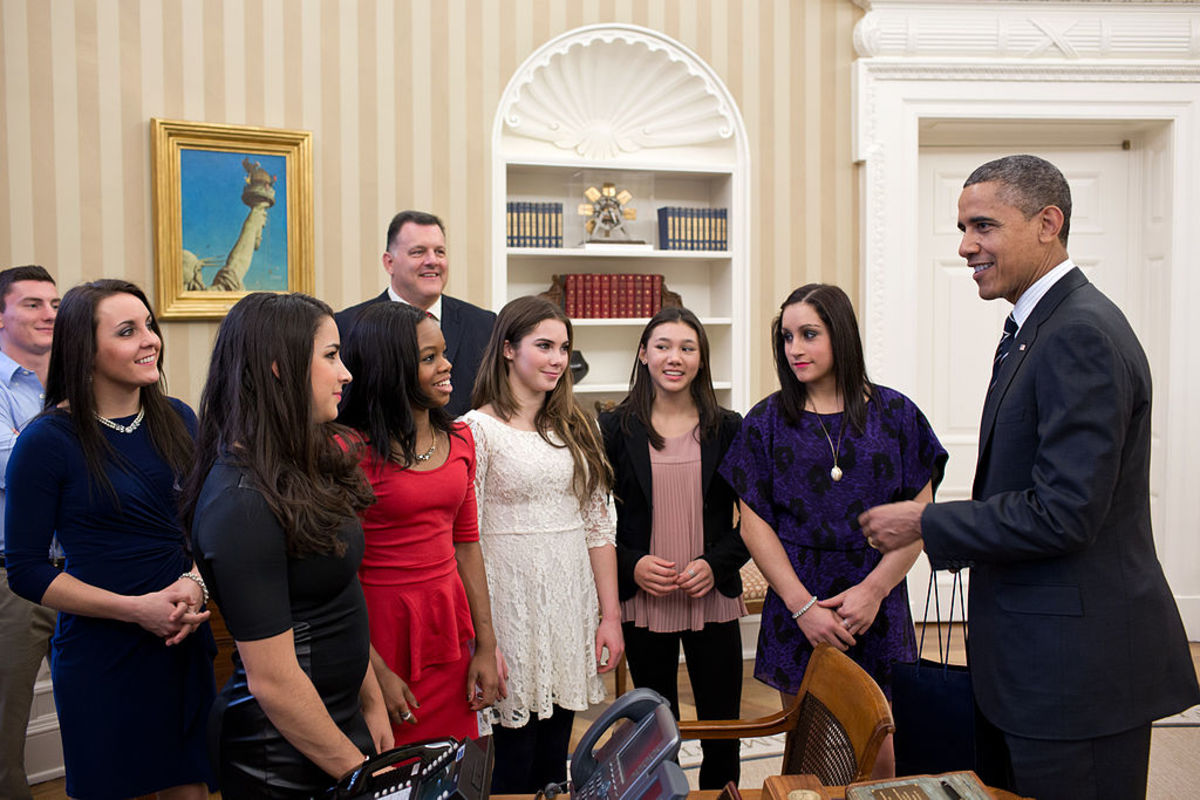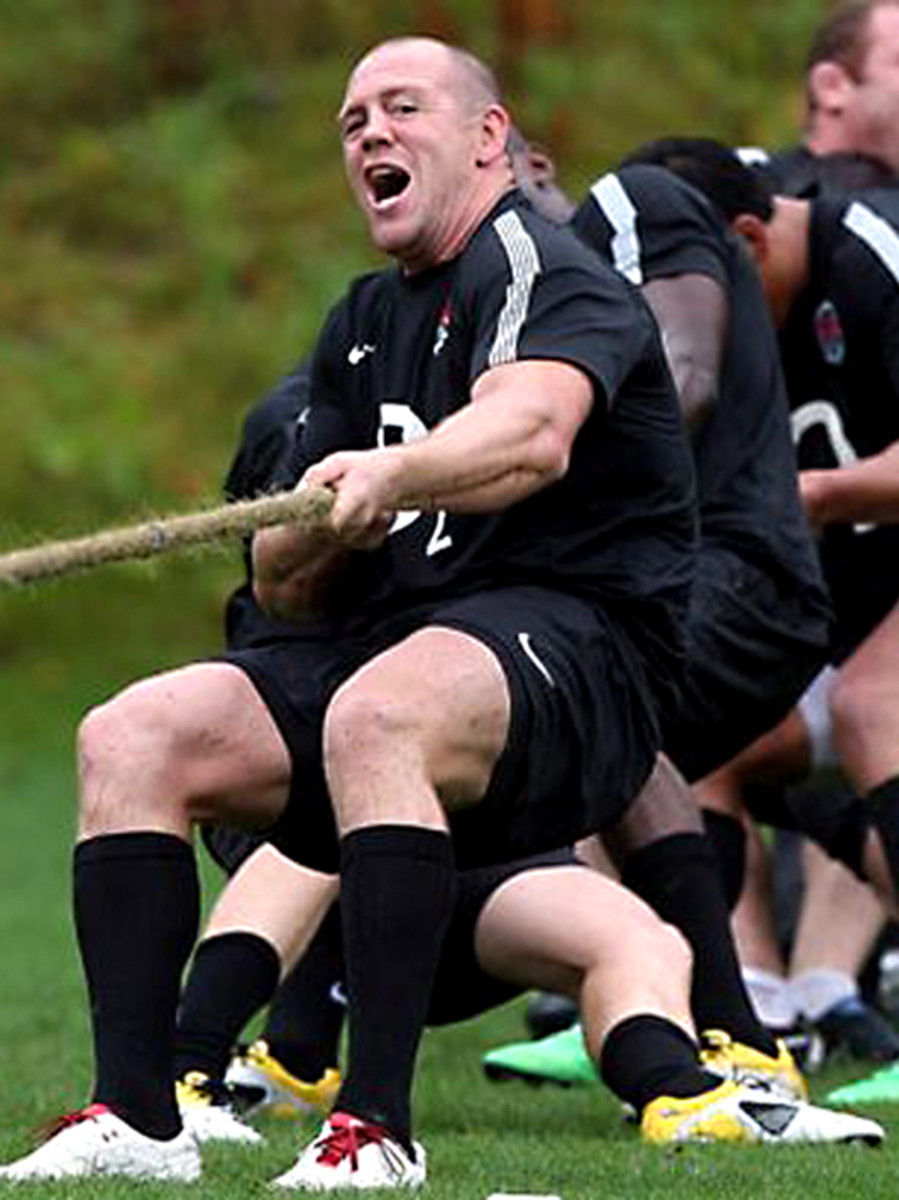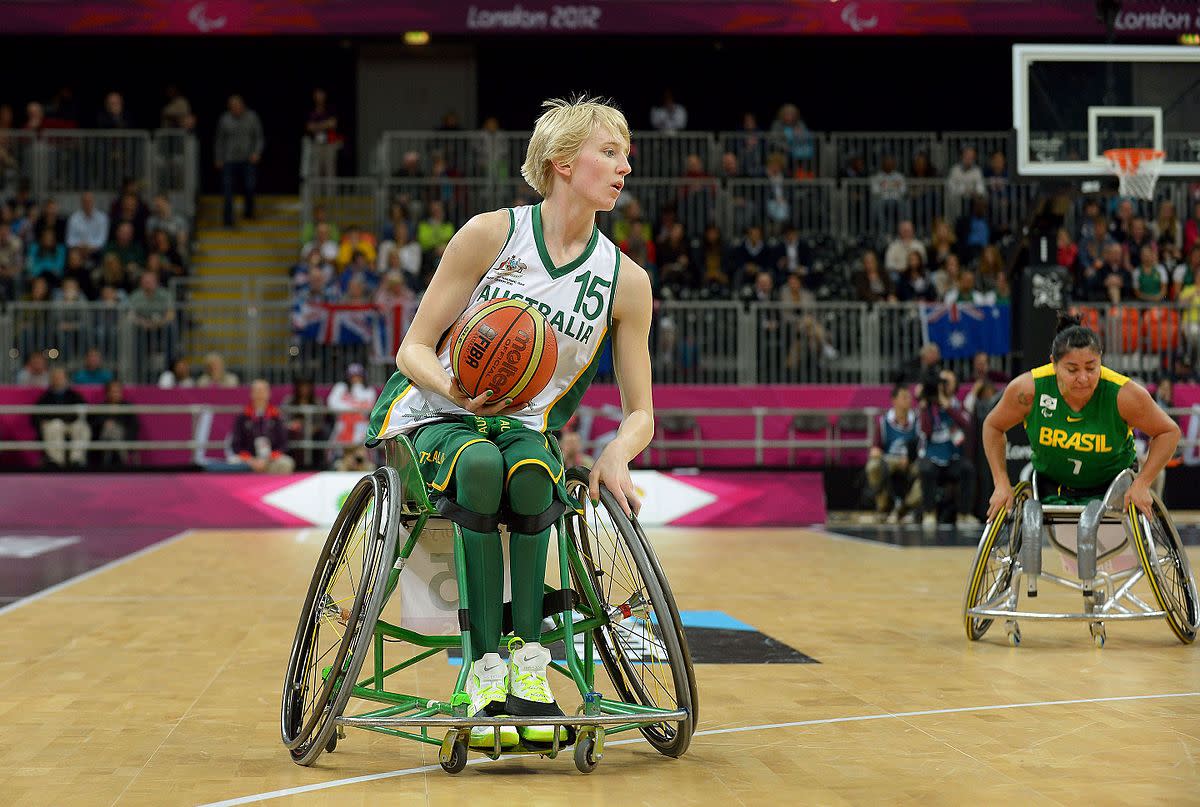Team U.S. Virgin Islands - The Other US Olympic Team in 2014 Winter Olympics
A Second American Team at Olympics in Sochi
For the 2014 Winter Olympics in Sochi, Russia, America’s Team U.S.A. consists of an impressive roster 230 of the nation’s best winter sports athletes.
This is the largest team the United States has ever sent to a Winter Olympics and is only two less than the 232 person Russian team which is the largest national team of athletes in the 2014 Winter Olympics in Sochi.
However, this is not the only Olympic team representing the United States at the Sochi Olympics.
Twenty-two year-old Jasmine Jade Ariel Lyons Campbell, known simply as Jazz to friends, from Hailey, Idaho and a junior at Whitman College in neighboring Walla Walla, Washington will be competing as an alpine skier and sole member of the U.S. Virgin Islands 2014 Winter Olympic Team.
Jasmine Lyons Campbell Skiing in Slalom in Sun Valley, Idaho
U.S. Virgin Islands Flag
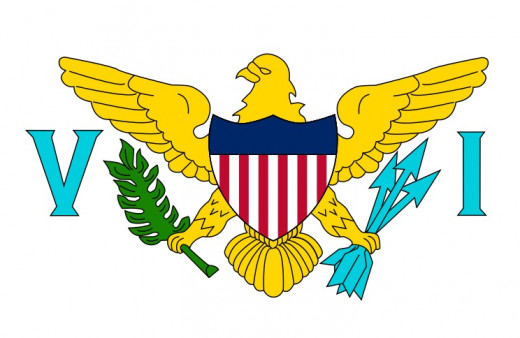
Jasmine Campbell is American Competing For an American Territory
Unlike fellow American skiers such as Gary and Morrone di Silvestri of Staten Island, New York who will be skiing for the Caribbean Island nation of Dominica, Julia Marino of Winchester, Massachusetts who will be skiing for the South American nation of Paraguay or Peter Adam Crook of Wisconsin who will be skiing for the British Virgin Islands, Jasmine is not a dual citizen.
Jasmine was born in the United States to American parents. However, like the 2008 Republican Presidential candidate, Senator John McCain, she was born in a non-self-governing territory of the United States rather than in one of the 50 U.S. states.
Jasmine Campbell at a Glance
Born: November 8, 1991
Parents: John and Jen Campbell
Place of Birth: Island of St. John, U.S. Virgin Islands
Current Hometown: Hailey, Idaho
Olympic Event: Alpine Ski Giant Slalom and Slalom
Other Olympic Connection: Her Father, John, Competed for the Virgin Islands as skier in 1992 Olympics in Albertville, France for the Virgin Islands.
While McCain was born to American citizen parents living in the former Panama Canal Zone (which was administered by the United States at the time and since turned over to Panama), Jasmine Campbell was born in the U.S. territory known as the U.S. Virgin Islands.
All of the U.S. states, except the original Thirteen Colonies, were once territories of the United States.
Like Alaska and Hawaii, which are both geographically separate and don’t border any of the other states, the U.S. Virgin Islands are geographically separate from the rest of the nation.
Also, like Alaska and Hawaii, the U.S. Virgin Islands weren’t acquired by the United States until after the Civil War when the nation stretched from the Atlantic to the Pacific (although some areas in between still had territorial status).
Brief History of U.S. Virgin Islands Territory
The Virgin Islands are located in the Caribbean Sea and are a part of the Leeward Islands group in the Lesser Antilles. Christopher Columbus sailed past them on his second voyage in 1493 and named the group the Virgin Islands in honor of St. Ursula, a fourth century princess in Britain, and her 11,000 virgin handmaidens who were killed by Huns while traveling to Rome.
For about 200 years after their discovery by Europeans the islands changed hands among various competing nations. However, in the late 17th century the islands of St. Thomas, St. John St. Croix and a few surrounding smaller islands were acquired by the Danish while the remaining islands in the group came under British control.
Despite some negotiations to sell the islands to the United States beginning in 1867, nothing was done until after World War I began in Europe.
With Denmark concerned about the need for funds to pay for the war and the still neutral United States fearing that the islands would be captured and turned into a submarine base by Germany, a sale if the islands was made to the United States.
The United States officially took control of the Virgin Islands from Denmark on March 31, 1917.
U.S. Virgin Islands
Island of St. John, U.S. Virgin Islands where Jasmine Campbell was born.
Charlotte Amalie, St. Thomas Island - Capital of U.S. Virgin Islands Territory
St. Croix, the third major island making up the U.S. Virgin Islands Territory
First Three Modern Olympic Games Did Not Have National Teams
The modern Olympic Games were supposed to about the individual athletes and teams, not nations.
In the first three modern Olympics (1896, 1900, and 1904) the athletes were generally not associated with their nations at the Olympics. However, beginning with the 1908 Olympics athletes increasingly came to be considered a part of their nation’s team.
In the early years, shifting borders and distinct national identities incorporated within old empires led to some nations being represented by more than one national team at the Olympics.
Austria-Hungry was one nation with two kings (one for Austria and one for Hungry) and, prior to their break-up in 1918, Austria and Hungry each sent separate teams to the Olympics.
National Olympic Committees Emerge As Nations Began to Promote their Teams
When it became apparent that most nations were determined to have their athletes compete as representatives of the nation, the International Olympic Committee (IOC) had each participating nation create its own national Olympic Committee which was charged with selecting the athletes to represent them.
The IOC requires that athletes representing a country must be citizens of that nation. This however, has not stopped nations, including the United States, from recruiting abroad.
Each nation has its own definition of citizenship which has resulted in many people having citizenship in more than one nation.
Dual citizenship is usually the result of birth or ancestry but, in recent years when a nation wants to recruit a foreign athlete they simply issue a decree or pass a law making that person a citizen which keeps the nation in compliance with IOC rules.
Some nations, including the United States, exercise control over a territory outside of their borders.
Non-Self-Governing Territories at 2014 Olympics
Territory
| Mother Country
|
|---|---|
Bermuda
| Great Britain
|
British Virgin Islands
| Great Britain
|
Cayman Islands
| Great Britain
|
Hong Kong
| Peoples Republic ofChina
|
U.S. Virgin Islands
| United States
|
Participation by Non-Self-Governing Territories is Not Exactly New
Non--self-governing territories began competing in the Olympics as early as the 1924 Olympic Games when the Philippine Islands (which were a territory of the United States until their independence in 1946) started sending its own team o the Games.
The African nation of Ghana also participated in the Olympics with its own team while still a British colony.
In addition to the United States, other nations controlling territory outside their borders include China which controls Hong Kong and Great Britain which controls Bermuda, the British Virgin Islands and some other territories.
These territories are allowed by the IOC to request to form their own Olympic Committees that are separate from the national committee.
Of course, the parent nation’s national committee must approve, or at least not object, to the territory’s formation of their own Olympic Committee.
U.S. Non-Self-Governing Territories
The United States has four non-self-governing territories which have their own National Olympic Committees and periodically send teams to Summer and Winter Olympics.
The territories are:
- American Samoa - group of islands located in Pacific Ocean
- Guam - an island in the western Pacific Ocean
- Puerto Rico - Spanish speaking island commonwealth located in Caribbean Sea
- U.S. Virgin Islands - group of islands located in Caribbean Sea
Non-Self Governing Territories of the United States That Can Send their Own Teams to the Olympics
The United States has four territories that have their own Olympic Committees.
These territories are the U.S. Virgin Islands and Puerto Rico in the Caribbean Sea as well as American Samoa and the island of Guam in the Pacific Ocean.
These territories are a part of the United States. People born in these territories are U.S. citizens with the same basic rights and freedoms as every other American citizen.
The major difference between these territories and the 50 states is that these territories cannot vote for a slate of electors from their territory in Presidential elections and do not have voting members in Congress (they do send non-voting observers to the House of Representatives).
With the exception of being able to vote for Presidential electors from their territory or have voting representatives in Congress, residents of U.S. territories enjoy all the same rights as other American citizens.
Should Territories like the U.S. Virgin Islands, Bermuda, etc. be allowed to send their own teams to the Olympics?
Residents of U.S. Territories Can Move to Other Parts of the United States
Residents of U.S. territories are free to travel, live and work anywhere in the United States and many people born in U.S. territories have moved to various U.S. states where they live and work.
This is what Jasmine Campbell’s parents did when she was 9 years old – they moved to Hailey, Idaho. It was in the snow and mountains of Idaho where Jasmine learned to ski and developed her skiing talents to the point where she qualified for the Olympics.
Jasmine’s connection to the U.S. Virgin Islands is the fact that she was born there and has maintained a connection to the territory from afar. Her family lived in the U.S. Virgin Islands before she was born. Her father, John Campbell, owned a business in the territory and skied for the U.S. Virgin Islands Olympic Team in the 1992 Olympics which took place three months after Jasmine’s birth.
Freedom of movement for American citizens within the United States works both ways and Americans are free to move between states and between states and U.S. territories. Along with freedom of movement within the entire United States, American citizens also have the right to live and work in any state or territory of the United States.
U.S. Territories
Athletes from U.S. Territories have Two Options for Olympic Team Participation
As American citizens, residents of U.S. territories have the option of going to the Olympic Games as either a member of Team USA or of their territory’s team. Since selection by either team is by competitive selection, athletes from U.S. territories, like other American athletes who have dual citizenship, have two, rather than one, shot a landing a chance to compete in the Olympics.
However, while all U.S. citizens are free to move to and live in any state or territory, participation the Olympic team of a nation or non-self-governing territory is governed by the rules of the nation’s, or non-self-governing territory’s, Olympic Committee as well as by the national and international governing bodies of the individual sports. These organizations are generally independent of their respective governments.
In the case of the U.S. Virgin Islands, the U.S. Virgin Islands Olympic Committee currently requires that athletes seeking to represent them in the Summer or Winter Olympics move to and live in the territory for three years before they can try to qualify for U.S. Virgin Islands Olympic Team.
This makes it especially difficult for those seeking to relocate to the U.S. Virgin Islands to qualify for the territory’s Winter Olympic team since the athlete not only has to maintain a residence in the U.S. Virgin Islands but also has to travel outside the islands to find the winter conditions needed to train for their sport.
Qualifying for Winter Olympics by establishing residency in American Samoa or Guam is even more difficult as they are both tropical and even further from the cold winter climates where Winter Olympic athletes have to train. As for Puerto Rico, that is also tropical and the territory’s language is Spanish rather than English.
Athletes Still Have to Compete and Qualify for Positions on Territorial Olympic Teams
The number of athletes competing for positions on the Olympic team of a U.S. territory is much smaller than the number competing for Team U.S.A. This is especially true for the Winter Olympics as all four U.S. territories with Olympic Committees are tropical islands.
Just because the pool of potential Olympic athletes in a nation or territory is small or, in the case of Winter Olympics, nearly non-existent, doesn’t mean that anyone who purchases a pair of skies, ice skates or other gear for a sport can qualify for a nation’s Olympic team.
The Olympics are intended as a showcase for the world’s best athletes and the rules of the International Olympic Committee, the national Olympic Committees and the various national and international rule making federations that exist for each sport all work to block from the Olympics the wannabes who seek the glory of being an Olympic athlete without undertaking the hard work and dedication needed to be a world class athlete.
International Ski Federation Olympic Qualifying Standards
Jasmine Campbell will be competing in the Giant Slalom and Slalom Alpine skiing events at the Winter Olympics in Sochi.
The International Skiing Federation (FIS) sets eligibility and quota rules for Alpine Skiers in the Winter Olympics.

For 2014 the final rules (which were published on January 20, 2014) set a maximum of 350 alpine skiers in the 2014 Winter Olympics.
Each National Olympic Committee (NOC) was allowed a maximum of 22 alpine skiers of which no more than 14 could be male and no more than 14 female on the team.
National Olympic Committees (NOCs) have to select their alpine team members from the FIS’s ‘A’ list of the top 500 alpine skiers in the world. These are the skiers whose scores from international competitions place them in the top 500.
For NOCs which do not have any citizens in the top 500 FIS Alpine rankings, there is a ‘B’ list which allows such NOCs to send one skier to the Olympics so long as the skier has 140 or fewer FIS points.
FIS points are calculated based upon an average of the skier’s rankings in FIS recognized competitions during the period prior to the Olympics. The lower a skier’s FIS points the higher that skier’s ranking in competitions. (See QUALIFICATION SYSTEMS FOR XXII OLYMPIC WINTER GAMES, SOCHI 2014)
Victoria Gaspar Competed With Jasmine Campbell for the One Spot on the USVI Team
Despite the lack of winter sport athletes from the U.S. Virgin Islands, Jasmine Campbell didn’t simply apply and get selected for the team.
She had to train for and, in the past year, compete in the five FIS sponsored Olympic qualifying events in order to earn the minimum qualifications for Olympic standing.
Also, in addition to Jasmine Campbell, there was another U.S. Virgin Islands skier, eighteen year old Veronica Gaspar, who was also competing for a place on the U.S. Virgin Islands Winter Olympic Team.
Like Campbell, Gaspar was born on the island of St. John in the U.S. Virgin Islands and grew up in Idaho following her family’s move there when she was a child. Gaspar was accepted to Johns Hopkins University and was scheduled to start in the Fall 2013 semester. However, she postponed college for a year to focus on her Olympic dream.
As late as mid-January 2014 skiers Campbell and Gaspar were both scheduled to represent the U.S. Virgin Islands at the Winter Olympics in Sochi.
However, less than two weeks before the February 7, 2014 official start of the Winter Olympics in Sochi, the Olympic Committee for the U.S. Virgin Islands was informed that, since neither of the skiers on their team was ranked at ‘A’ level, the territory would be allowed to send only one alpine skier to Sochi.
As a result of Campbell ranking higher due to having a lower FIS score than Gaspar, Campbell would be representing the U.S. Virgin Islands alone.
Slalom Ski Competition
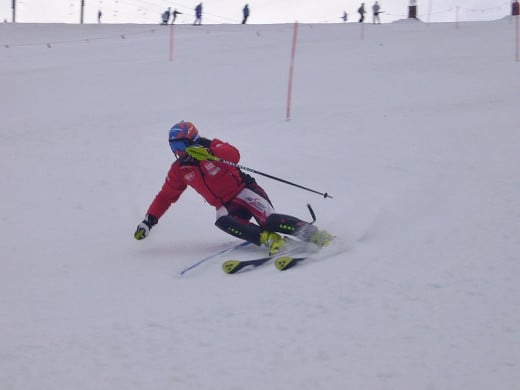
While dual citizens and citizens having a connection to a territory of their nation may have the option of having more than one Olympic team to try to qualify for, there are no guarantees that they will get a spot.
Gadflies and weaker athletes are usually disqualified early and are able to move on with lives quickly and without having to sacrifice much other than their egos.
However, serious athletes at the margin between world class and serious competitors, like Veronica Gaspar, can make great sacrifices in preparation only to see their hopes dashed at the last minute due to having a ranking just below the next best in the competition. One bad day or one bad break can separate best from second best in competition for a chance to compete in a given year’s Olympics.
Jasmine Campbell’s Road to the Sochi Olympics
All Olympic competitors have to spend time and money to get in shape physically and professionally. Intense practice, training, acquisition of equipment, paying for coaches, expert training assistance as well as travel to and participation in competitions around the world all consume huge amounts of time and money. For tropical nation or territory Winter Olympic athletes there is also the additional cost of traveling to winter climates to practice and train.
Jasmine Campbell was first introduced to snow and winter sports at about age ten when her family moved from the U.S. Virgin Islands to Idaho. This is where her Olympic dreams began.
Of course she had role models in the form of her parents, John and Jennifer Lyons Campbell, both of whom were competitive skiers despite living in the U.S. Virgin Islands.
Her father, John Campbell, represented the U.S. Virgin Islands in alpine skiing at the 1992 Winter Olympics in Albertville, France.
Jennifer Lyons Campbell, her mother, had been preparing for the 1992 Winter Olympics even while pregnant with Jasmine. However, following Jasmine’s birth, which occurred three months prior to the 1992 Olympics, Jennifer Campbell decided to stay home with Jasmine and her two brothers Ryon and Ross.
Once the Olympics became Jasmine’s goal, she began practicing her skiing and supplementing her practice with lessons, competitive events and strength building with cross training in the gym as well.
In an interview for a February 7, 2014 article in the Idaho Mountain Express, she told the reporter that during the winter when snow was available she used to train five to six days a week. These included two on snow sessions lasting about two hours each practicing the slalom or giant slalom followed by strength training in the gym. When her two older brothers were in town the gym part was replaced by what she described as combat hockey which was her brothers’ idea of good cross-training for competitive skiing.
Jasmine Campbell's Olympic Journey From the Virgin Islands to Sochi, Russia
St. John Island in U.S. Virgin Islands where Jasmine Campbell was born
Hailey, Idaho where Jasmine learned to ski after her family moved there.
Sochi, Russia location of 20014 Winter Olympics
Island of St. John in the U.S. Virgin Islands where Jasmine was born.
High School Accident Puts Olympic Dreams on Hold
Despite her ability and success in competitions, here Olympic dream was shattered when an injury in high school left her unable to ski competitively. However in 2010, following a back operation she joined the Whitman College, where she was a student, ski team and again resumed her Olympic dreams.
She resumed her training routine and began competing again. As the 2014 Winter Olympics drew near, her efforts increased. She took a leave from college, in order to train and compete.
In the same Idaho Mountain Express article interview cited above she mentioned that, as part of her cross training in preparation for the 2014 Olympics in Sochi she entered a Tough Mudder event in Florida in November 2013 and won in the women’s division.
Her preparations also included traveling to FIS competitions in South America, Asia and other parts of the world where she gained the FIS points needed to qualify for the Olympics. In a December 2013 FIS competition in China she came in second and third place in the giant slalom on December 11 and 12 and then placed fourth in slalom races on December 13 and 14.
November 2013 Florida Tough Mudder Event That Was a Part of Jasmine's Olympic Preparation
Jasmine has Invested A Great Deal of Time and Money Pursuing Her Olympic Dream
While, over the years, Jasmine has received financial and in kind help from many, including $15,000 this year from the government of the U.S. Virgin Islands (like many governments, but not the U.S. government, the USVI government does provide some financial assistance to its Olympic athletes), the biggest portion of the cost, in both time and money, of her quest has come from her and her family.
While the competition may not have been as difficult as competing for a spot on the Team USA Olympic Team, no one can say that Jasmine Campbell didn’t earn the right to carry the flag of the U.S. Virgin Islands at the opening of the Winter Olympics in Sochi.
© 2014 Chuck Nugent


